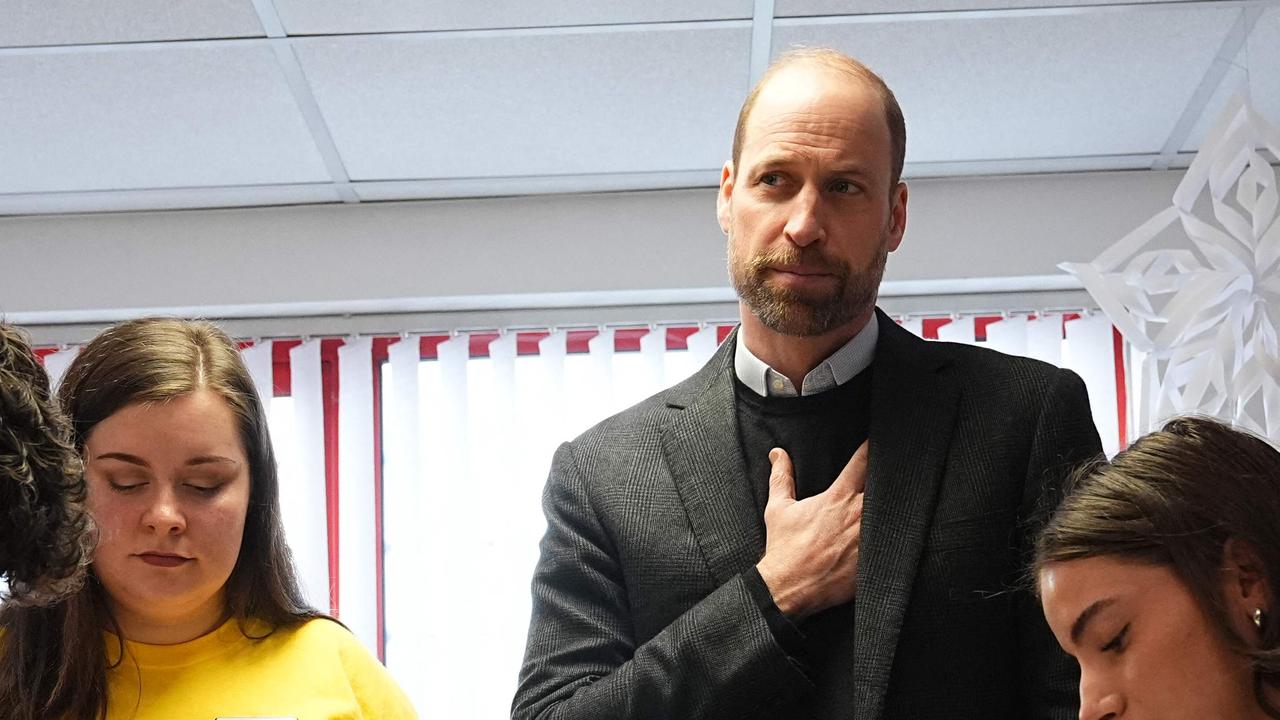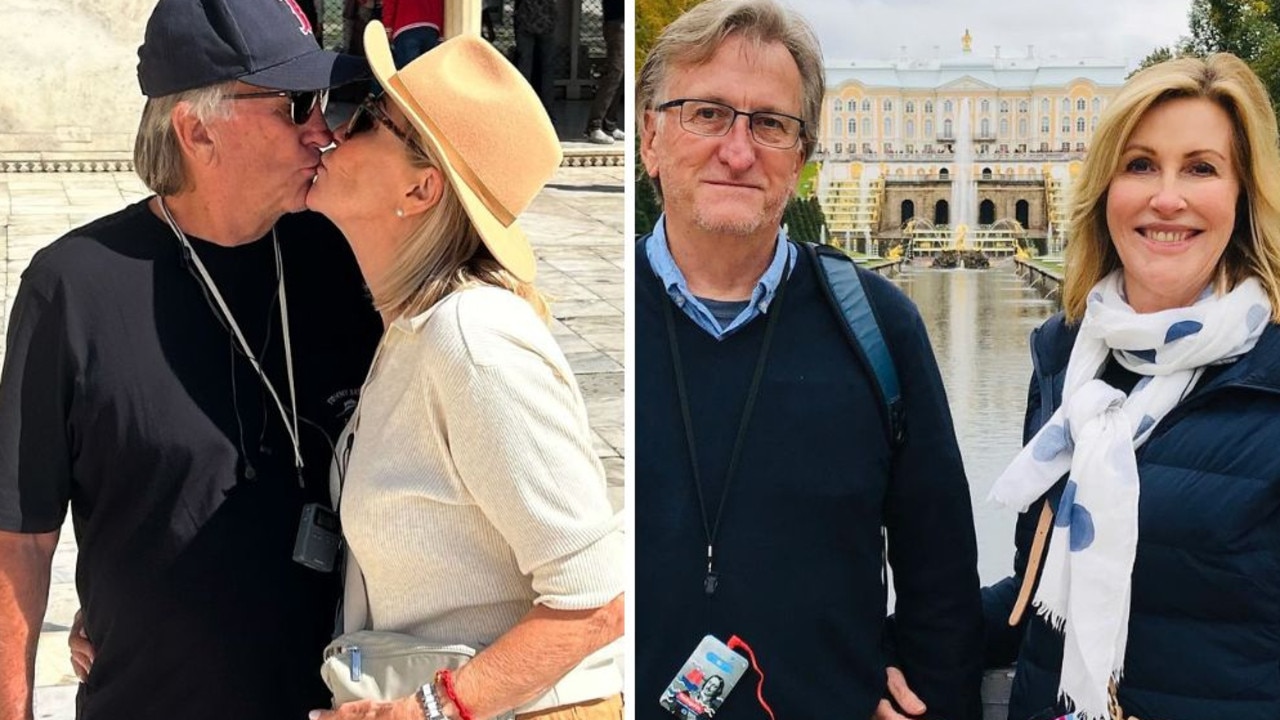Denzel’s son John David Washington breaks out with Spike Lee film BlacKkKlansman
AFTER years spent hiding his passion for acting under a football helmet, John David Washington has finally taken up the family business — and he’s scoring goals with BlacKkKlansman.
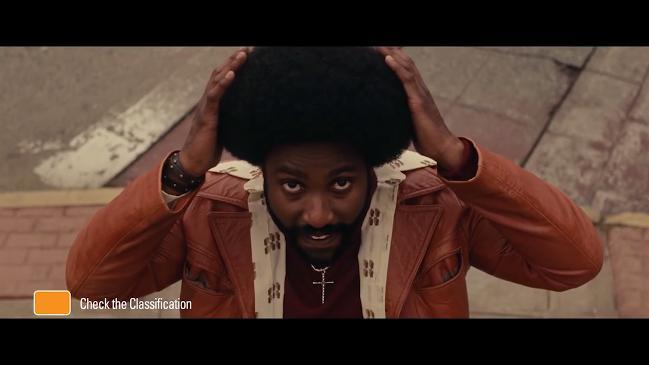
Entertainment
Don't miss out on the headlines from Entertainment. Followed categories will be added to My News.
SPIKE Lee has earned a permanent place on the Washington family Christmas card list.
It was the director’s Malcolm X that nabbed Denzel Washington his first Best Lead Actor Oscar nomination in the early 1990s, giving the actor a new platform.
Twenty-five or so years later, it was Lee again who handed John David Washington — Denzel’s 34-year-old son — his first lead role, in the acclaimed BlacKkKlansman.
And the younger Washington swears he won’t forget the gift Lee has given him.
“Christmas, Thanksgiving, he’s my Valentine … all of that. Better believe it,” Washington laughs. “Box of chocolates every year.”
DENZEL WASHINGTON, STAR OF THE EQUALIZER 2, IS HERE TO HELP
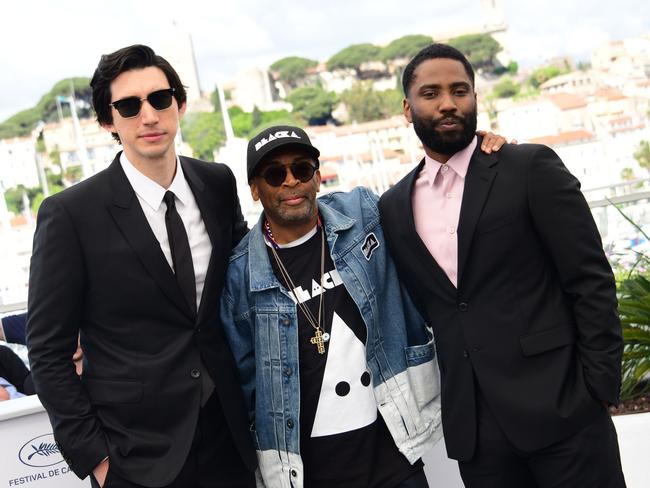
BlacKkKlansman is the strange but true story of Ron Stallworth, the first African-American detective in the Colorado Springs police department, who infiltrated a local chapter of the Ku Klux Klan in the early 1970s, even befriending the organisation’s “grand wizard” David Duke by adopting a white racist persona over the phone.
A white colleague in the department, Flip Zimmerman (played by Star Wars’ Adam Driver) would take over as “Ron” for face-to-face meetings.
When he wasn’t freaking out with castmates over being in a Spike Lee Joint (as the director calls his films) — “They were setting up this shot of us in the church and we were just like, ‘Yo, this is the shot, we’re in a Spike Lee Joint shot right here, this is crazy!’” — Washington was feeling intimidated by the task of portraying Stallworth, who is still alive and kicking.
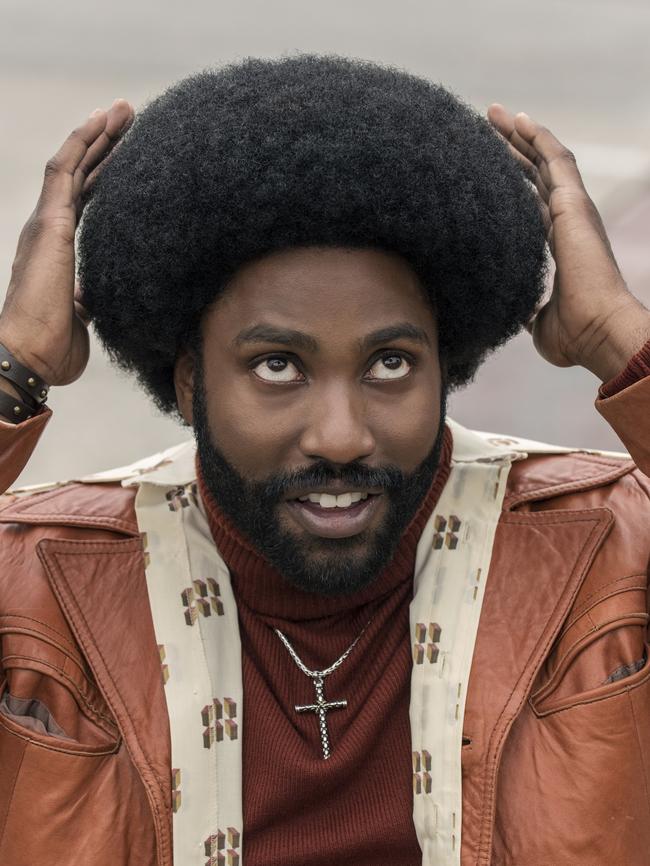
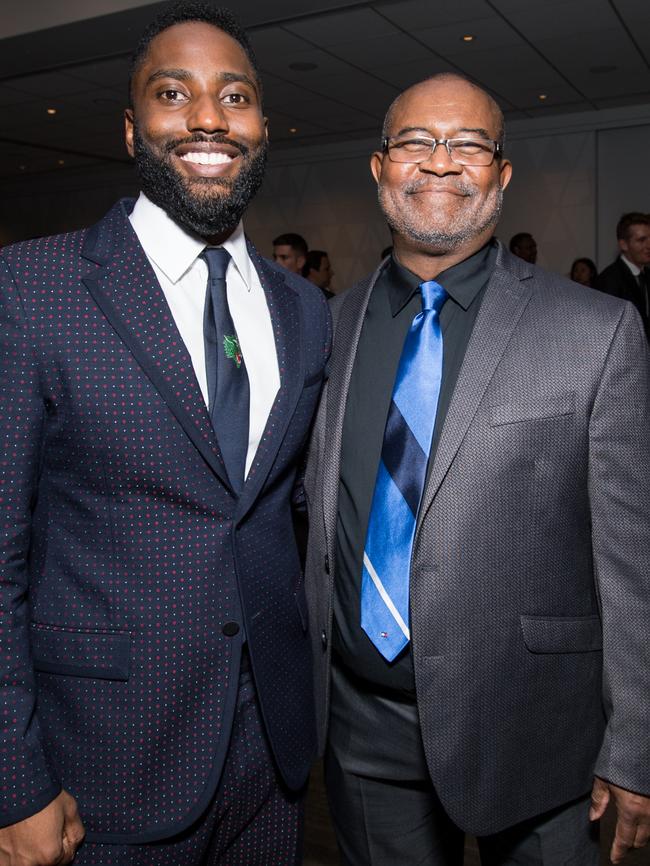
“Reading up on him, this guy was almost like an Avenger, he was like a superhero to me. Malcolm X or Martin Luther King, you see what they’ve done and how they affected this country, but here’s this man who nobody knows, they don’t know this rich history.
“So when I met him, yeah, I was a bit nervous. I didn’t know this, but Ron said he kept one of the voicemails I left for him and he told me how I was giggling nervously and I kept thanking him and thanking him … and I can’t deny that, ’cos I did thank him — it was a heck of an opportunity.”
Though set in the 1970s, BlacKkKlansman draws stark parallels to the US today, even including footage from last year’s clashes between white nationalist and anti-racism protesters in Charlottesville.
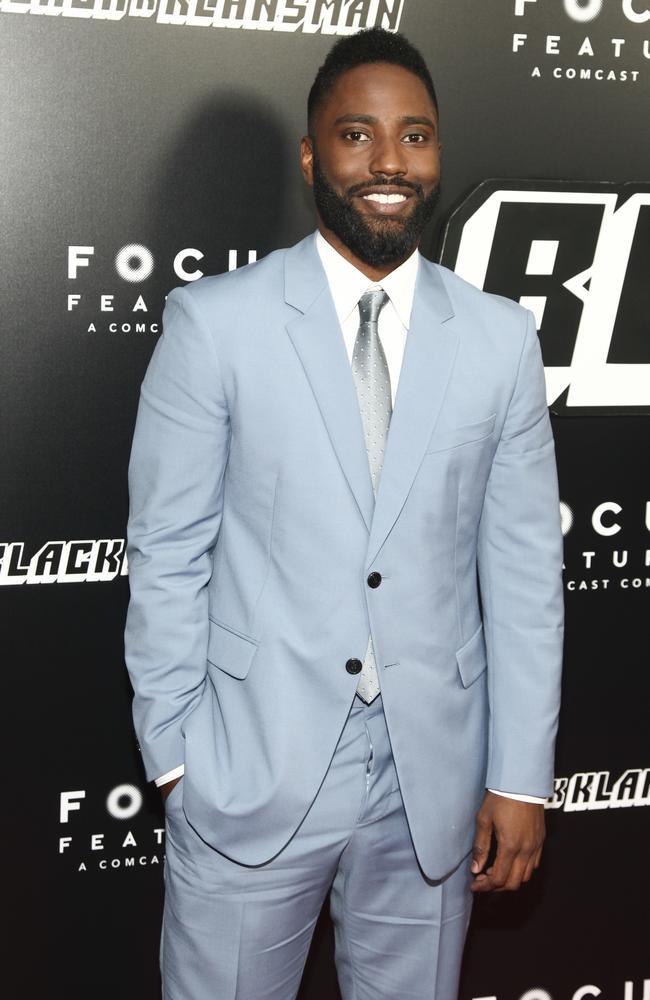
“It’s an accurate depiction of how people think in this country,” Washington says of the language used in the film, “how they’ve been thinking in this country for decades, what they sound and talk like and feel behind closed doors or at their family barbecue, how divisive these words of hate are. These words get disguised as self-empowerment and then used to keep on spreading this hate, making it an institution almost.
“But it’s inexcusable and it’s divisive this is why we need to be able to, maybe after seeing this film, find the right words or communication to bridge that gap, change the vernacular.”
During his research, Washington asked his mother Pauletta, also an actor, whether she thought times were scarier in the ’70s or now.
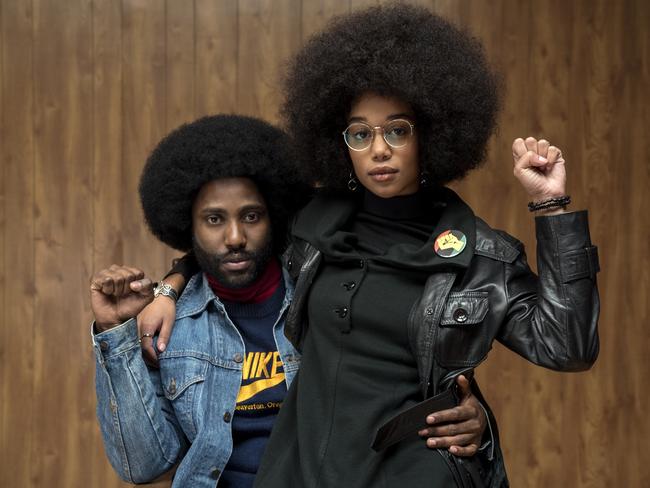
“She said now,” he reveals, “and I found that interesting because I felt it was so much scarier back then, coming off of Vietnam and the murder of Martin Luther King, the murder of JFK … America was just fed up. You saw that expression of them being over it in what changed — the music, the hair, the clothes, the drugs and the slogans for peace and love.
“While I could be depressed about what the cause (of that change) was, what came out of it was beautiful art. I mean, the movies back then were reflective of those times and how creative people got because they were just fed up with all the needless violence and racism and bigotry.
“So it was a wave of emotions, kind of like the movie: You laugh, you get angry, you cheer, you cry … that’s how I felt in researching this role.”
The art of those times helped Washington find Stallworth’s groove: the actor says restricting himself to a diet of only ’70s music changed the way he moved.
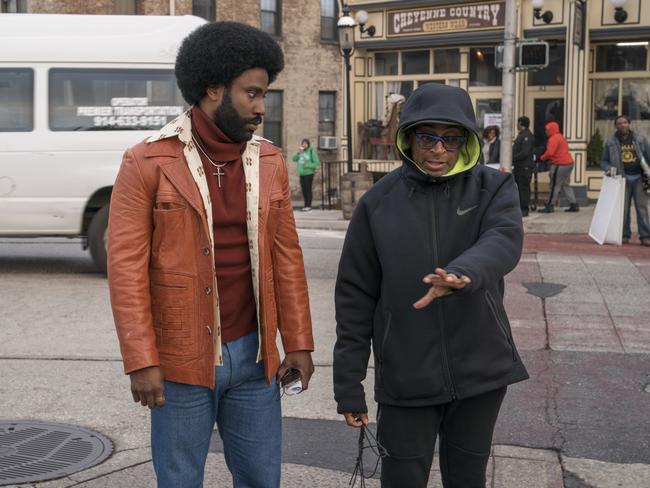
“It absolutely-lately-lately did. I didn’t listen to any rap, or hip hop, R & B, rock or anything contemporary, it was stricken from my diet for almost three months. I was going to sleep to Soul Train footage from YouTube and live performances from bands like War.”
BlacKkKlansman isn’t the first Lee film Washington has appeared in.
As a youngster he would regularly join his father on movie sets — the earliest he can remember is Glory, aged four or five.
“For some kids, it’s going to Disneyland, laser tag or an ice-skating rink,” Washington says. “For me, a film set was a theme park.”
On the Malcolm X set, Lee put the young Washington to work, asking the then seven-year-old to appear in a classroom scene.
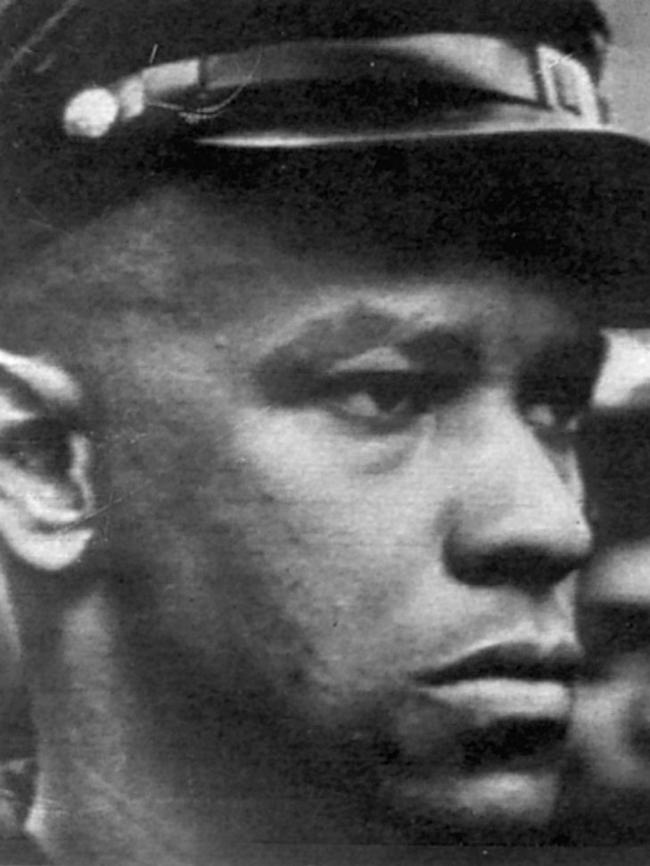
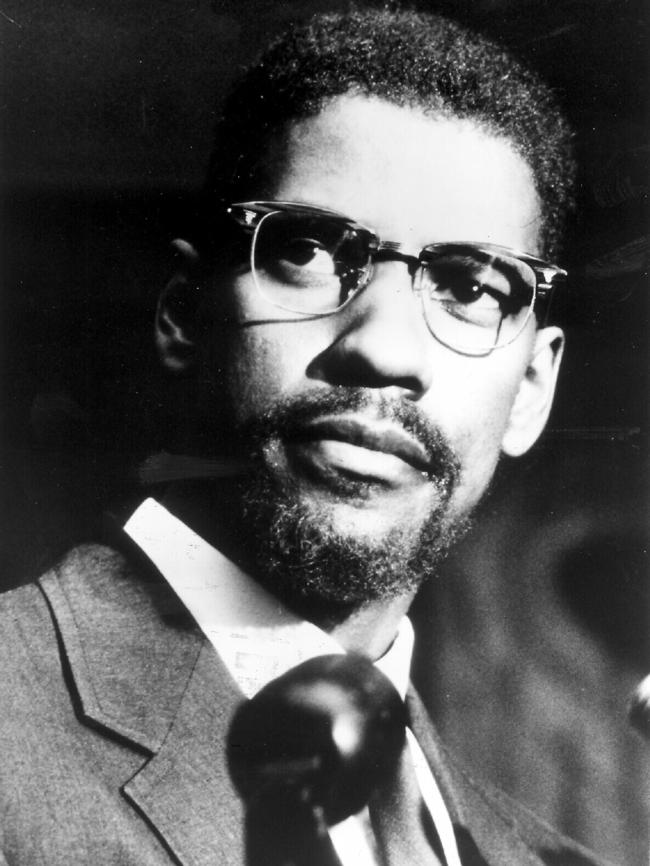
“I don’t remember exactly how … he just told me to stand up and say ‘I am Malcolm X’. I did it seven times — I guess I wasn’t nailing it at first,” Washington recalls with a laugh. “But I feel like he got it, we got a good take.”
The need for a bit of teenage rebellion meant he didn’t immediately follow his parents into the business.
A star grid iron player at university, he went pro with NFL club the St Louis Rams. But injuries saw him tap out of the game.
He was on crutches thanks to a torn achilles when he auditioned for the HBO drama Ballers, playing a trouble-prone star footballer guided by Dwayne Johnson’s sports agent.
After years running away from his real passion, now that Washington has committed himself to acting, is it everything he might have hoped?
“Everything and more,” he says. “I’ve never been happier, doing what I’m doing. I mean I’ve had great days in football, but there’s nothing that can compare to having a great day on set. Nothing can compare to the reception we got at Cannes Film Festival. No championship would have been as gratifying, as fulfilling as that moment. Which says to me, it’s what I’ve been wanting to do my whole life.”
That foray into football wasn’t wasted time, with many skills learnt on the field applicable to his new life as an actor.
“Discipline. Routine. Improvisation. Collaboration. Trust. Facing adversity; overcoming that. Checking your ego at the door to achieve a victory. No hierarchy, nobody’s position is more important than the other,” he reels off the list.
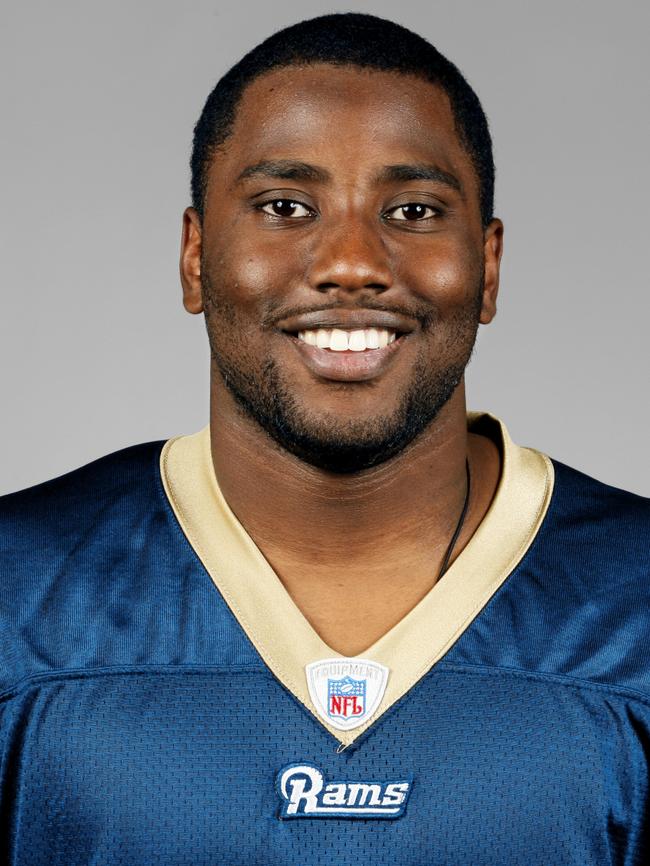
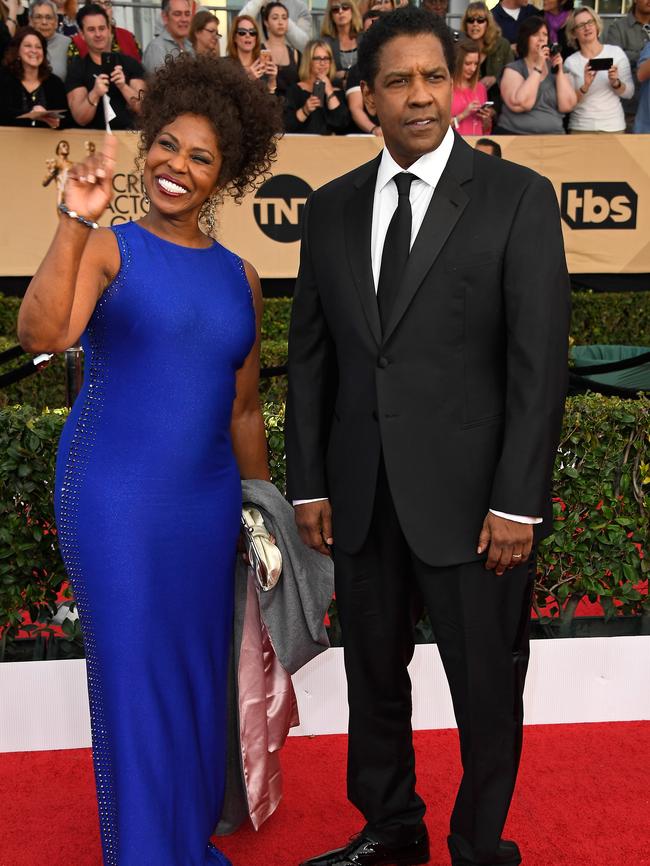
He says he understands his parents love for “the craft” now and reasons for doing it beyond money and fame.
“If I can inspire somebody the way I was inspired watching movies growing up, I’ve done my job.”
BLACKKKLANSMAN OPENS AUGUST 16
BALLERS SEASON 4 IS NOW STREAMING ON FOXTEL ON DEMAND

